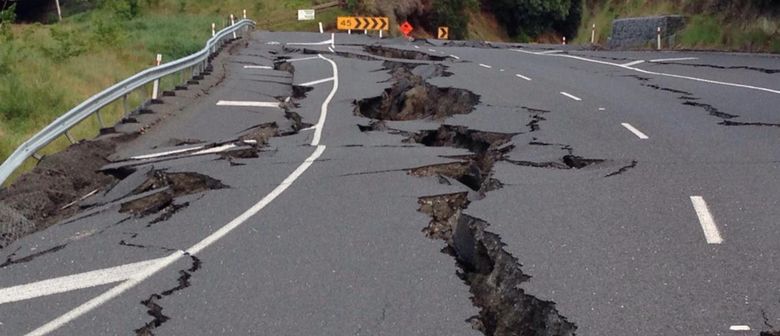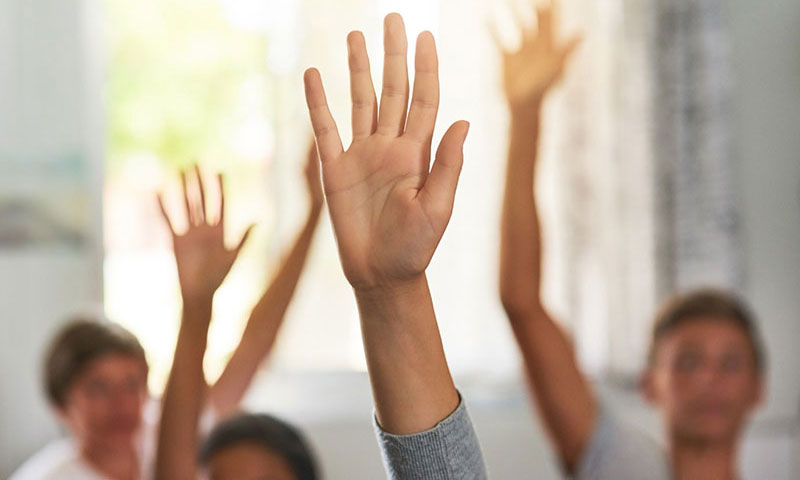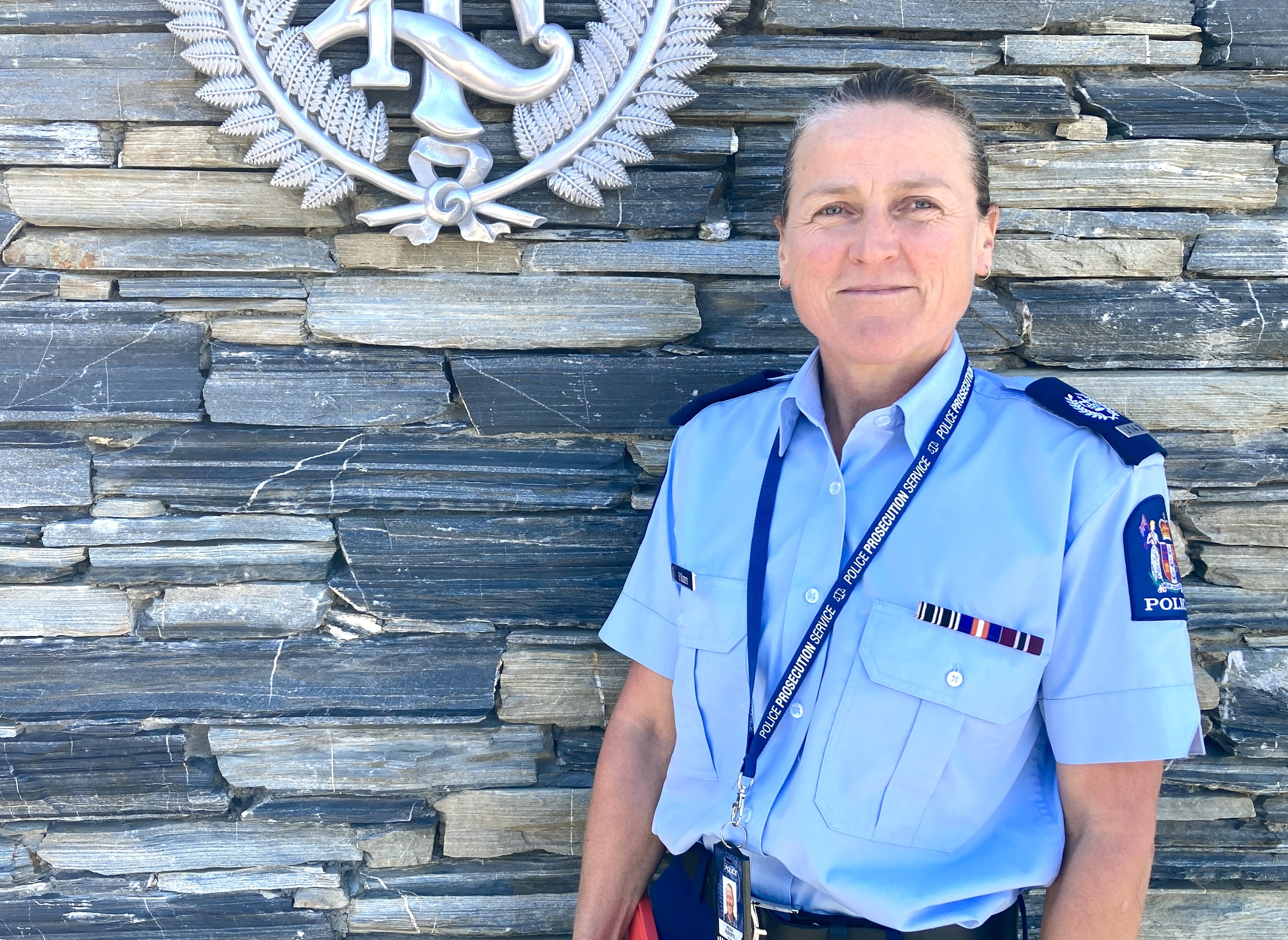Hot topics for candidates: Are we prepared?
Sue Wards, Editor
10 September 2025, 5:06 PM
 A large earthquake on the Alpine Fault (AF8) is only a matter of time, scientists say.
A large earthquake on the Alpine Fault (AF8) is only a matter of time, scientists say.Preparation for a major earthquake is the fifth hot topic facing the Upper Clutha which the Wānaka App has asked local body election candidates their views about.
The Alpine Fault produces a significant fault (magnitude 8 or above) every 300 years on average and the last major rupture occurred in 1717.
Associate professor Caroline Orchiston said while we can’t predict when earthquakes will occur, scientific research has shown that “...the next major Alpine Fault event is likely to occur within our lifetime, and we must take steps now to prepare”.
Read more: Getting ready: event helps community prepare for emergency
The Wānaka App asked candidates for the Wānaka Ward of Queenstown Lakes District Council (QLDC) and the Wānaka Upper Clutha Community Board (WUCCB) whether they and other Upper Clutha residents are sufficiently aware and prepared for AF8.
Community Board candidates respond
Simon Telfer: “No we are not fully prepared but we are getting better. I championed a large donation to the Wānaka Community Response Group to purchase a fully equipped trailer for educational and emergency purposes. Lyal and I have also worked hard over this term to ensure Emergency Management Otago gave a greater focus to the Upper Clutha. Slow but steady progress.”
John Wellington: “Awareness of AF8—the Alpine Fault earthquake scenario—is steadily growing in the Upper Clutha, but preparedness still varies across households. If a magnitude 8 quake strikes, our community could face weeks of isolation with limited access to food, fuel, and medical supplies. The good news is that strong local networks are already in place. The Wānaka Community Resilience Group and the Wānaka Community Response Group, working alongside QLDC and Civil Defence, have been building plans, mapping resources, and raising awareness of what an AF8 event would mean for our community. These groups will be crucial in coordinating support on the ground until outside assistance can get through.
However, the responsibility doesn’t sit with them alone. Every household has a role to play. Some families already have emergency kits, water, and communication plans, but some remain underprepared. Experts say we must be ready to be self-sufficient for at least two weeks.
By connecting with our local resilience and response groups, stocking up on essentials, and checking in with neighbours, we can all strengthen Wānaka’s ability to get through AF8 together. Preparedness is not just an individual task—it’s a community responsibility, and yes I need to improve my own preparedness.”
Chris Hadfield: “I don’t believe that my family nor most of Wānaka are ready. We could be cut off for many weeks but the message is getting out more and more.”
Kathy Dedo: “No. A challenge for emergency response is a framework that relies on a top-down cascade of support AND a bottom-up grassroots response. Both ends are relatively well supported by central government and community volunteers respectively, although funding is focused at the top end. As co-manager of Community Link during Covid, I was part of a district-wide welfare response that saw us responding to hundreds of requests for assistance daily. Civil Defence cascaded information from a national level to local authorities, who did an excellent job coordinating a response. However this was only possible in partnership with a huge number of community groups and volunteers.
An ideal scenario would be for the community groups in the middle to be better resourced, and for individual households to be better equipped. This starts with education and then requires people to take action – no easy task when there are so many competing priorities for our time and money.
I recently checked my family’s emergency response bucket which had outdated food and corroded radio batteries! AF8 is overdue, and being cut off is a near certainty. Kudos to the Wānaka Community Resilience Group, volunteers who do an amazing job training and educating ahead of disaster. Check out their website for more information on how we all can get prepared.”
John Bache: “I have received zero information on this topic since moving to the area, so can only assume there are others with a similar knowledge gap when it comes to preparedness for such an event.”
Linda Joll did not respond.
Council candidates respond
Quentin Smith: “I’d say we’re probably underprepared. People are more aware than a few years ago following [the] Christchurch earthquake and cyclones - regarding how we’d cope if cut off for weeks. I support the work of Wānaka Community Response Group and Council’s EMO (Emergency Management Office) who are already pulling people together and making practical plans. Their role will be critical when the cavalry doesn’t arrive straight away. However I am also certain that the strong community will naturally pull together when the need arises.”
Barry Bruce: “Emergency management advisors have worked hard to inform and educate our communities on what to do in an extreme emergency such as a major earthquake. The geographical ruggedness of this region could mean we are physically isolated for an extended period of time. The message I would like to emphasise is the need for everyone to be prepared.
While we do have well trained and prepared emergency services, in a major event they may not be able to respond as we normally expect. It is also extremely important to know what to do and be able to self help rather than wait for help. In my family’s case we have emergency food, standby power generators and the ability to establish alternative cooking and toilet facilities, water supply etc. It is also very important to check on neighbours and the elderly and ensure they have the basics until help arrives.”
Niki Gladding: “What I know is that the cavalry will not be coming. We will run out of food quickly and normal utilities will cease to function. I know my survival and wellbeing in those circumstances is no one else’s responsibility so I need to be as self-reliant as possible – right now. Living in Glenorchy, we knew we needed to be prepared for a few weeks – with no road access for months (minimum). So, our place [was] well equipped and stocked with food for at least two months. I had a system for rotating perishables and refilling water drums. And everyone had camping gear. The only thing missing from my kit was a large, heavy tarpaulin for the house – it’s still on my wish list. Over here I always have an emergency kit, large first aid box, sleeping bag, cooker, food, and walking shoes in the car. But I haven’t sorted our food and water supplies for the new place – possibly because I don’t feel as isolated with supermarkets five minutes away. If others share that sort of complacency, the Upper Clutha is probably not as prepared as it needs to be."
Craig Gasson: “The preparation for natural disasters such as a major earthquake is a very important role for local government. This work is ongoing and we must continuously improve how prepared we are - we know that the Alpine fault is due for a magnitude 8+ quake: this is not a matter of if, but when. This starts with education. I think most QLDC residents know that we live in an earthquake prone part of the world, but how many residents are prepared, both for the initial impact but also getting through the weeks and months when we will be without power, fresh water or wastewater facilities and are isolated from the rest of New Zealand? We cannot rely on the central government to get us through this; we will be hit hard but other areas of the South Island will be worse off and a priority for emergency services and ongoing support after the event. I have already engaged in discussions with concerned scientists and residents about how better to prepare and educate residents and tourists. A good example is how many businesses in downtown Wānaka, tourists taking selfies on the lakefront or summer campers around Lake Hāwea know that an Alpine Fault earthquake could trigger a very large (landslide induced) lake tsunamis, and they may have only a few minutes to get to higher ground? I’m hoping to work with central government to put in place warning systems and locally we can make sure those that work in proximity to, and spend time along our lake margins are aware of this. “By failing to prepare, you are preparing to fail” (Benjamin Franklin). I applaud the efforts of the Wānaka Community Response Group for their efforts in preparedness for our district. This is another example in the Upper Clutha of self driven community initiative.”
Yeverley McCarthy: “I am personally not that au fait with the AF8 other than to know that if we did have a large earthquake I probably would not be prepared for it. At the Wānaka Community Hub we have worked with the Civil Emergency group to offer that building in case of any emergencies in the area, however I am not qualified to comment on those plans.”
Nicola King: “I don’t believe the Upper Clutha is as prepared for AF8 and other natural disasters as we need to be. The reality is that the level of disruption from an Alpine Fault rupture would be massive. Food, power, water, and access could all be cut off for weeks, and our supply chains are highly vulnerable. While the good work from Civil Defence, QLDC, tourism, emergency services, and the AF8 project to raise awareness is gaining momentum, there’s still a big gap between knowing about the risks and actually being prepared for them. As a community we remain underprepared and there could be more support for these groups.
Individual responsibility is just as important as council or government planning. We can’t assume someone else will always take care of us in a disaster. Simple steps like household emergency kits, communication plans, and building stronger neighbour-to-neighbour connections will make a real difference. Something I have and will take steps to do.
We also need to think beyond the immediate aftermath to how an AF8 could reshape our economy and way of life. Christchurch taught us that recovery is not quick or easy. We absolutely need to keep plugging away at growing this awareness and action.”
Lyal Cocks: “There is some awareness of the risk of an AF8, but getting the wider community prepared for such a disaster is a challenge. A lot of work has been done by volunteer Community Resilience Groups throughout the district to motivate and advise people and organisations how to become more prepared based on experience from the Christchurch earthquakes. Complacency is a big issue, so it is important to keep the issue front and fore, and as a member of the Wānaka Community Resilience Group I am committed to ensure that happens.”
Cody Tucker: “I’m a camping nerd and slight ‘prepper’ so I feel as ready as I can be. There are quite a few local groups who take a keen interest in making sure there is equipment and systems to help get people through. There’s probably far more we could do in terms of Bailey bridges and grid sharing schemes with batteries, but kiwis always find a way to make do.”
Thorsk Westphal did not respond.
PHOTO: Supplied






